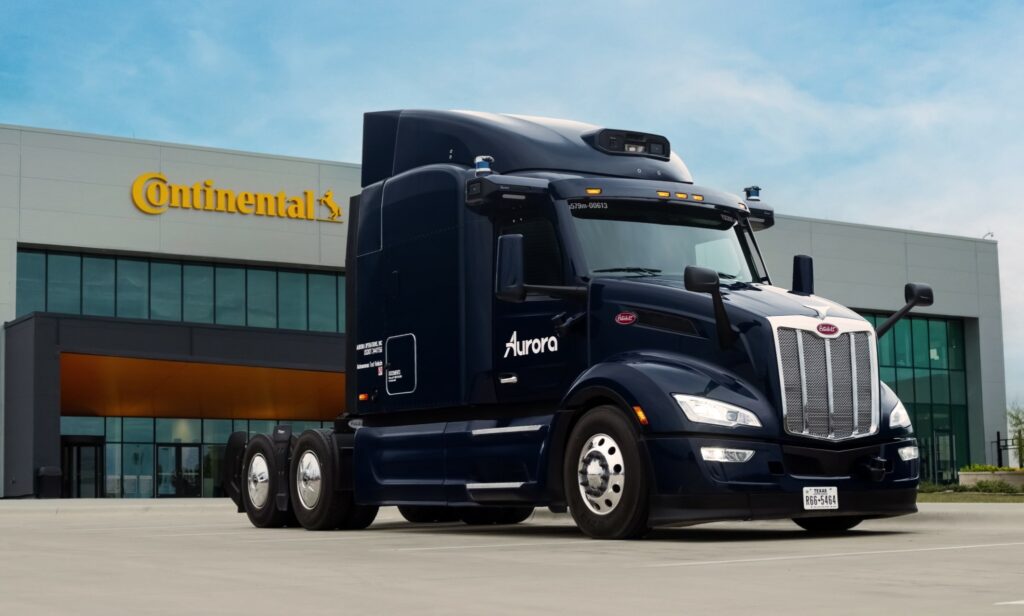Continental, Aurora reach milestone for autonomous trucking system
Continental and Aurora Innovation say they’ve reached a key development milestone toward commercializing autonomous trucks at scale.
The two companies have finalized the design and architecture of the future fallback system and hardware for the Aurora Driver Level 4 autonomous driving system, which Continental will begin producing in 2027.

The development comes less than a year after the two companies announced a partnership geared toward enabling high-volume manufacturing of autonomous trucking systems.
“Technologies for autonomous mobility present the biggest opportunity to transform driving behavior since the creation of the automobile,” said Philipp von Hirschheydt, executive board member for the Automotive Group sector at Continental. “Achieving this milestone puts us on a credible path to deploy easy-to-service autonomous trucking systems that customers demand.”
Aurora plans the initial driverless launch of its autonomous driving system – designed to run 1 million miles – at the end of 2024.
The company’s work with Continental involves developing a fallback system that will build in redundancies in the case of component or sensor failures.
“From day one, we knew we’d need to build a strong ecosystem of partners to bring this technology to market safely and at a commercial scale,” said Chris Urmson, co-founder and CEO at Aurora. “Finalizing the design of our future hardware is a meaningful step toward making the unit economics of the Aurora Driver compelling and building a business for the long-term.”
Have your say
This is a moderated forum. Comments will no longer be published unless they are accompanied by a first and last name and a verifiable email address. (Today's Trucking will not publish or share the email address.) Profane language and content deemed to be libelous, racist, or threatening in nature will not be published under any circumstances.
I wish Aurora all success. It has the leadership and the team equipped to achieve its stated objectives.
Is the expected time line (end of 2024) too aggressive?)